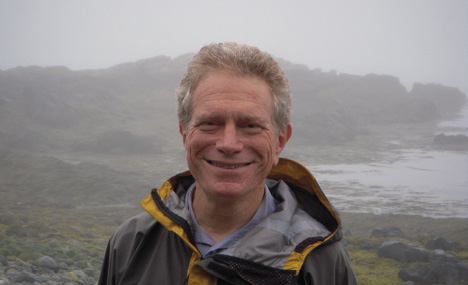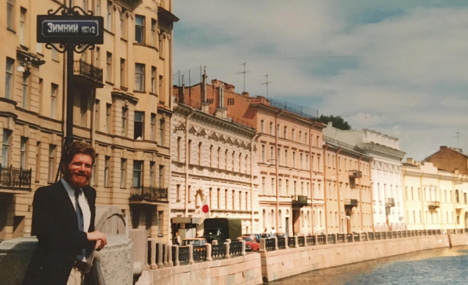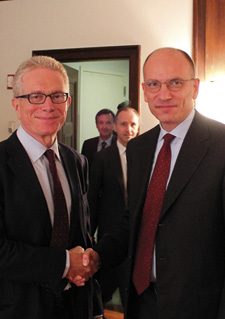David Freedberg – 50th Reunion Essay
David Freedberg
460 Riverside Drive, Apt 101
New York, NY 10027
daf5@columbia.edu
Spouse(s): Catherine Phillips (1973-1982); Deborah Kahn (1987-1994); Anna Grimshaw (2002-present)
Child(ren): Hannah Claire (1976); William Ernest (1992)
Grandchild(ren): Sadie (2002)
Education: Yale University, BA (1969); University of Oxford, D.Phil (1973)
Career: Assistant Professor of Art History, University of London 1973-1984; Professor of Art History, Columbia University 1984-2003; Pierre Matisse Professor of Art History, Columbia University 2003-present; Director, The Warburg Institute, The University of London 2015-2017; Director, The Italian Academy for Advanced Studies in America, Columbia University, 2000-present
College: Trumbull
On my first evening on the Old Campus, right outside Durfee, someone was practicing Mozart’s Clarinet Concerto. This, I thought, was the height of civilization. That I should ever hear Mozart being practiced in a public space was something I could not have imagined in South Africa. Already Yale seemed overwhelming—not always positively. When I arrived off the boat from Cape Town in July 1966, I worked in the kitchens of that great temple of fitness, the Payne Whitney Gym. Six weeks earlier, just before the boat left, I’d visited the malnutrition wards in Baragwanath Hospital in Johannesburg—and the amount of food I tossed out at Yale every evening, discarded by the football team in training, could, it seemed, have saved thousands of those African children. I never failed to wince at the abundance of waste in the plush dining halls of Yale. Or at the general inequalities of wealth on display in New Haven. Or at the racial injustices, the absurdities of ROTC (I thought I’d left militarism behind in South Africa). It was the second half of the ’60s; the war in Vietnam had become a growing and ever more pointless tragedy; and my sense of Yale’s goodness in helping me (and then my brothers) leave South Africa became submerged between the strange combination of activism and misery of those years. There were still no women at Yale; Inky Clark’s plans for a more mixed campus were coming to fruition, but only uneasily; and I had difficulty finding my way. Had it not been for the encouragement of a few teachers, I would have been even more lost. That the great Eric Havelock and Adam Parry should have hired me as their research assistant continues to baffle me. But still I wanted to leave, and somehow I convinced the powers that be that I should graduate in three years. I still think I must have pulled the wool over people’s eyes. All the more stupefying, then, that I should have been tapped for Scroll and Key, which I’d not even heard of previously (I was the young recluse of Phelps Hall). It was the patience of my friends with my ideas and my poetic deliria that somehow got me through.
I should have been happy at Oxford afterwards, but it was only there that I appreciated the quality of the education I received at Yale: the urbanity of the best of my teachers, the lightness with which they wore their deep learning, the forms of salutary American pragmatism that still inflected my education at Yale. I thought I’d left a country full of injustice, running a set of cruel and foolish wars, to come to one in which a reasonably kind welfare system prevailed. But Thatcher the Milk Snatcher came to power not once but twice, and so I returned to the US, 15 years after I left. Only now have I begun catching up with the friends of those years (and appreciating those I was so snobbish about as an undergraduate, like Vince Scully and so many of those golden-tongued mentors of the 1960s).

Freedberg in Machiasport, Maine, in 2009

Freedberg in Leningrad, 1983

Freedberg with Italian Prime Minister Enrico Letta in 2013
If the above is blank, no 50th reunion essay was submitted.
